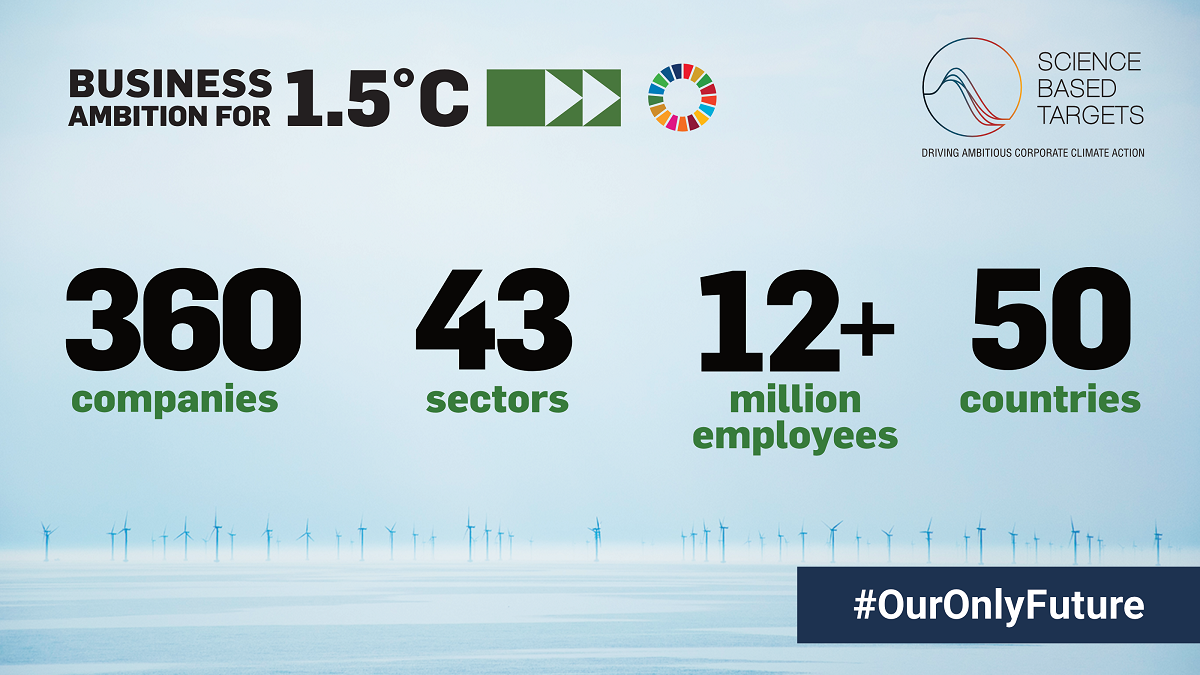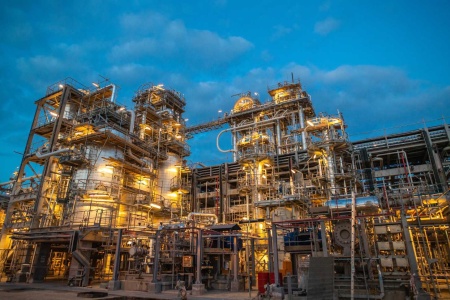
Five years of progress; a decade of action ahead
7th Dec 2020
It’s five years since the Science Based Targets initiative (SBTi) was formed and the landmark Paris Agreement signed. Corporate and government ambition for a net-zero, 1.5°C future is ramping up, but the race to zero has only just begun.
By the Science Based Targets initiative Steering Committee: Alberto Carrillo Pineda (CDP), Heidi Huusko (UNGC), Cynthia Cummis (WRI), Alexander Farsan (WWF)
2020 has been a landmark year, in many more ways than we could have expected. The past twelve months have been characterized by disruption, uncertainty and human tragedy on a global scale. It is also the year in which resilience, cross-border cooperation and human ingenuity have been called to the fore like never before.
In some ways, this huge wake-up call could not have come at a more appropriate time.
This week we mark five years since the historic Paris Agreement was signed - a near-unanimous agreement by the world’s governments to do what is required to secure our planet’s climate-safe future. As that agreement was being forged in the suburbs of Paris five years ago, an initiative designed to mobilize the private sector in the fight against climate change was being born.
Five years of action
Five years on, and with more than 1,000 companies having joined its ranks, the Science Based Targets initiative (SBTi) is standing again at this critical juncture for the future of the economy and planet.
The essence of our message is the same, but - spurred both by the momentum we are seeing from businesses and by science - today it is bolder.
The private sector has a vital role to play in driving down greenhouse gas emissions. We need every business in every sector to act. Governments should take confidence from the ambition and action of companies, and build supportive policy to catalyze further action.
But now we know, as we did not five years ago when the Paris Agreement was adopted, of the imperative to limit warming to 1.5°C above pre-industrial levels. Companies are stepping up to this level of ambition in a way that we could never have imagined in 2015.
Scaling up ambition: the imperative of 1.5°C
Today, 360 companies have committed to a 1.5°C pathway through Business Ambition for 1.5°C, more than a doubling since last year’s COP in Madrid.
While these past months have presented unprecedented challenges for businesses, it is a source of great encouragement to see that climate action is at the heart of their future plans - in spite of, or perhaps spurred on by, this pandemic.
Recent joiners include Sony, Coca Cola European Partners, AB Volvo, GlaxoSmithKline, Accenture, SSE, Ralph Lauren Corporation and PricewaterhouseCoopers International Limited. Together, they span 43 sectors and 50 countries, with a combined workforce of over 12 million employees.
The companies’ combined annual direct (scope 1 and 2) emissions are over 521 million tonnes, equivalent to 134 coal-fired power plants. By signing up to a 1.5°C future they are committing to reduce a combined total of over 230 million tonnes of scope 1 and 2 emissions, more than the total CO2 emissions of the Ukraine in 2018.

A critical decade - and a 2050 north star
Because of the short-to-mid term timeframe of science-based targets the large majority of these reductions should take place before 2030, our critical deadline for halving global emissions. This shows the potential scale of the contribution the private sector can make in the race to drive down emissions, and also points to the far greater reductions that are possible if more companies join this movement.
That’s not all - many companies are also committing to reaching science based net zero targets by 2050 or before.
This is critical to ensuring that the decisions they make in the coming years about the future of their business are directed by a long-term vision of a net-zero economy. And as we look towards the future of the SBTi, one of our priorities over the coming months is to deliver a standard for net-zero target-setting to ensure those commitments are grounded in science.
Today a level of action unimaginable five years ago is becoming the new normal. The SBTi is proud of its instrumental role in that shift.
But we know there is much more to do, and now is not the time to take our foot off the pedal.
The Paris Agreement demonstrated an unprecedented level of global cooperation and unity. Now business and government need to work together like never before, to accelerate the transformation that is already underway to a zero-carbon, healthy and thriving future for business, people and planet.
Latest News
View News


